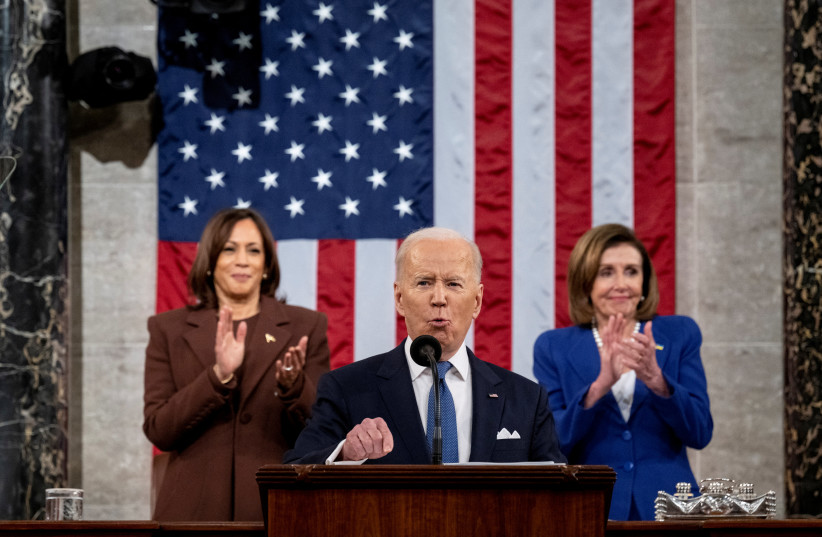Why is the war in Ukraine hot right now? There may be more than one answer, depending on how each side views this dangerous global development.
Most importantly, the war creates a new world order and accelerates the formation of the foundations of that system. Theories that limit the polar rivalry between the US and China are being challenged, with Russia poised to have a say in the calculus of global influence in the 21st century.
Russian President Vladimir Putin, who, according to several Russian and western media outlets, told his US counterpart George W. Bush in 2008 that Ukraine was not a country, does not care about the West’s reactions. He believes that he is fighting a war of liberation in Ukraine, and is only restoring the normal course of events after Russia woke up and emerged from the weakness of the Soviet Union.
What is happening in Ukraine is among the darkest hours in Europe since World War II, said Josep Borrell, the EU’s coordinator for external relations. This is a real surprise for the West, although it has been talking and warning about the danger of a Russian invasion of Ukraine. On the other hand, there seemed to be a tendency to rule out this scenario.
It was generally accepted that Russia would eventually give in. Until a few days ago, there was no agreement among the West on how the crisis would develop. German Foreign Minister Annalena Baerbock warned against speculation about Russia’s intentions in the Ukrainian crisis.

President Joe Biden was sure of Putin’s decision to invade the former Soviet republic. When asked if she shared Biden’s assessment of the crisis, Baerbock said the worst thing to do was to speculate or assume the other side’s decisions.
Russian propaganda and political maneuvering have undoubtedly played a significant role in creating doubts in the West about the possibility of an invasion scenario, especially when it comes to questioning US tactics. Its propaganda has pointed to former secretary of state Colin Powell, who groomed the UN to invade Iraq in 2003, when he presented “evidence” of deception of international inspectors and a cover-up of weapons of mass destruction.
Powell, after leaving office in 2005, called his speech at the UN as a stain that would forever remain on his record, and then expressed regret in a 2010 television interview. His statement was simply not true.
This incident was well used by Russian propaganda to torpedo any US statement about a possible Russian invasion of Ukraine, which it believed to be a scenario out of the imagination of US intelligence agencies. Ironically, the war broke out just days after the Munich security conference. The US attended and reassured the Allies.
Vice President Kamala Harris and Secretary of State Antony Blinken were also there. Despite all the warnings and threats of sanctions, Russia had made its decision and apparently waited.
RUSSIA, SUPPORTED by China, is demanding the withdrawal of all US troops and weapons stationed in Central and Eastern Europe, Southeastern Europe, and the Baltics, and the renunciation of any further NATO expansion.
This explains why President Putin insists on changing the geo-strategic realities on the ground in order to later negotiate with the West and impose his demands, or force NATO to change the de facto enlargement plan, especially in the event of the fall of Ukraine.
President Volodymyr Zelensky described his country as Europe’s shield against Russia. The Atlantic military support, he said, is not a charitable contribution that Ukraine is asking for, but a contribution to maintaining security in Europe and in the world.
Strategic assessments that limited Russia’s actions to finger-pointing and brinkmanship were wrong, Zelensky said, and these assessments made clear that both Russia and the West wanted to win without a military confrontation. This showed that many had not yet understood the thoughts, orientations, beliefs, and even lessons learned from Putin’s past behavior.
The surprise effect of this military operation, whose developments and details were closely followed by the whole world, cannot be denied. It is almost absurd to speak of surprise. But it has happened.
Most Western capitals ruled it out and were skeptical that the invasion scenario could be realized. Many lived in hope that Putin would relent; others fell for Moscow’s repeated denials that it intended to attack Ukraine. The point was to get security guarantees from the Atlantic.
Some thought it was just a maneuver to force concessions from NATO. But those who looked at the events from a deeper historical and ideological perspective knew very well that Putin would not back down. This was evident in the discussions at the Munich conference, which was an ideal opportunity for the Kremlin to learn what Western circles thought about the Ukraine crisis.
The writer is a UAE political analyst and former Federal National Council candidate.
